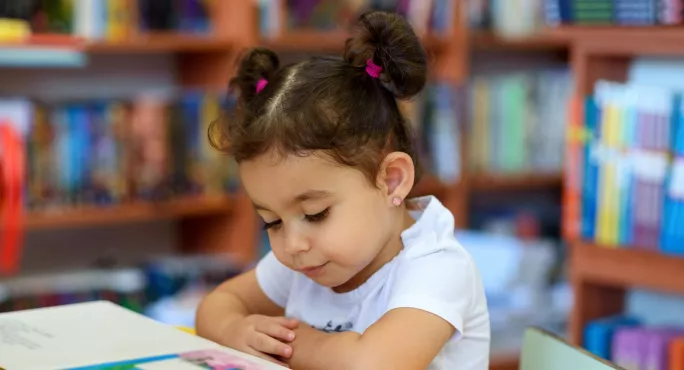It seems obvious that there would be a link between the language abilities of a parent and those of their child.
But have you ever thought about why? Is it because of how parents interact with their children? Is it something genetic? Or both?
And here we are in the age-old nature-nurture debate.
Language development: the role of genes
Genes clearly play a role in a child’s language ability. We know that many genes are involved and we know that language is highly heritable. However, it can’t all be about genes. Whether we learn English or Japanese depends on our environment.
One aspect of a child’s language environment is the input that they receive from their parents. In a recent paper, Nina Anderson and colleagues describe a study that investigated whether the quantity and quality of parental linguistic input is linked to child language skills.
Quantity here refers to the amount of speech directed to a child by their parent. So, this could be the number of words.
Quality is harder to define. For their study, Anderson and colleagues defined quality as a combination of diversity and complexity. For example, the range of different words that a parent uses and how they use them.
Anderson and colleagues conducted a meta-analysis, statistically combining results from 52 studies. They found that both quantity and quality were associated with child language, but quality showed the stronger association. Interestingly, the link with quality increased with age. This was not the case for quantity.
A two-way street
One possibility is that parental input drives a child’s language. However, a child’s language can influence parental input as well. After all, conversations are a two-way street.
Genes might also be important here. Genes influence language biologically. Perhaps more surprising is that genes can also shape our environments. For example, if we are genetically predisposed to be good readers, we may have more books around.
It makes sense, then, that the children of good readers will have access to more books. So, what appears to be an environmental effect, could be driven, in part at least, by genes.
This is what is meant by a gene-environment correlation, as Sara Hart and colleagues have described in their open-access paper arguing that “nature might be nurture”.
What does this mean for teachers and schools?
We know that genes are important for language. However, this is not the end of the story. The environment is also very important and that will include the language environment that is created at school, as well as that created in the home. How much talking we do to children is important, and so is the range of language that we choose to use.
At the moment in the LARA lab, Grace is looking at how pre-schoolers learn about phonics from apps. We are also looking at the amount of reading that children and adolescents do in their leisure time.
Dr Jessie Ricketts is director of the Language and Reading Acquisition (LARA) Lab at Royal Holloway, University of London, where Grace Pocock is currently a PhD student




